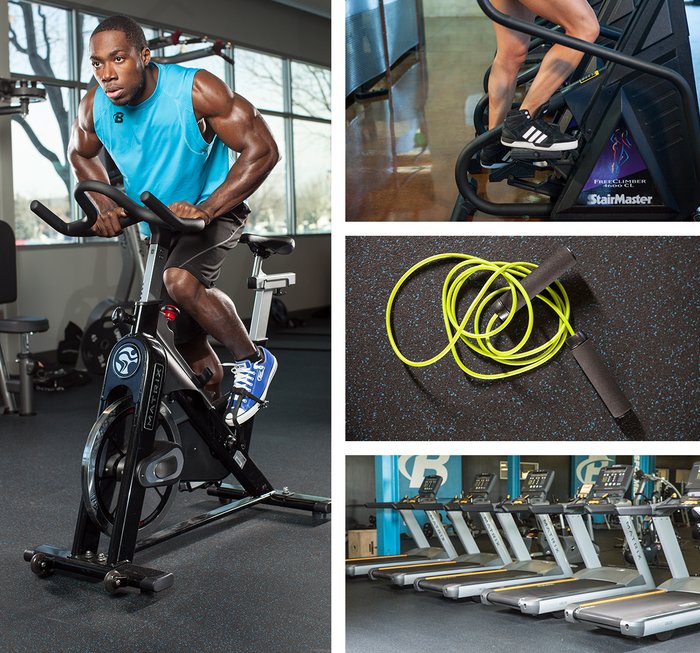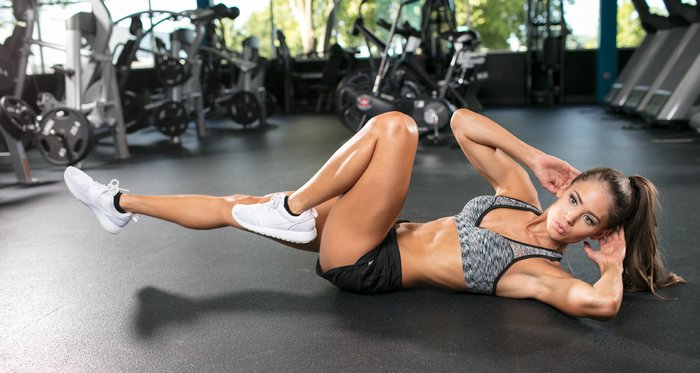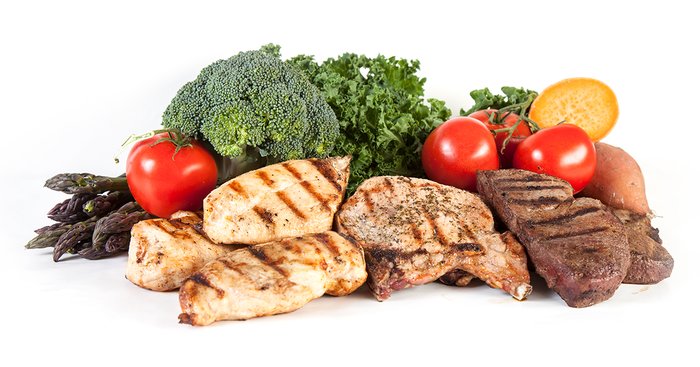

No matter if your goal is fat loss, muscle gain, or athletic performance, high-intensity interval training can help you nail it. Here are complete workout programs for each goal!


High-intensity interval training (HIIT) has become a popular way to burn fat in the gym, but that's not all this type of cardio training is good for.
The essential framework of high-intensity interval training is always the same: Brief, all-out work periods, separated by rest periods that you wish were just a little longer. The work-to-rest ratio can vary from 1:1 (for example, 30 seconds on, 30 seconds off) to 1:4 or more, and the rounds can be just a few or 15 or more. But no matter how long you rest, the key is that you bring everything you've got to your intervals.
HIIT can be used to lose as much fat as possible while cutting, to stay lean and conditioned while adding muscle, or to improve aerobic and anaerobic endurance for performance-focused athletes.
Below, you'll find an approach for each type of athlete, plus guidelines for what movements to use, and even how to eat when you're following the program.
While some coaches will recommend doing interval workouts with everything from bodyweight squats to machine bench presses, I believe that HIIT is cardio, and should be treated like cardio.

In other words, stick to either cardio machines or sprinting. Here are a few choices:
In all cases, I recommend starting off with a short dynamic stretching warm-up and a 3-4-minute jog or light pedal before each routine, plus 4-5 minutes of light jogging or cardio as a cool-down.
For both of these, go no higher than 50 percent of your maximum heart rate. Here's the warm-up I recommend:
Then, get to work! If you're using a heart rate monitor (which is a good idea), a "brisk walk" or jog is about 65-75 percent of your maximum heart rate (MHR). A sprint is more like 90-95 percent. It's an all-out battle!

Over the course of eight weeks, add one round per week to your HIIT workouts, gradually working up from 8 total rounds to 15.
Add one round every two weeks, increase the number of repeats in your HIIT workouts from 6 to 10 by Week 8.

After two weeks of doing this workout three times per week, add two more rounds to each workout. After four weeks, add another two. After six weeks, add another two. For weeks seven and eight, add three rounds, for 16 rounds total.
Along with training, your diet will mostly determine how your body responds to this intense training. Here's how I recommend organizing it:
Fat Loss:
Muscle Gain:
Improving Aerobic and Anaerobic Endurance, Maintaining Body Weight:

HIIT will help accelerate fat loss and improve aerobic and anaerobic endurance. HIIT will most likely produce very fast results in a short period of time, which is why it has been gaining popularity ever since it was introduced to the bodybuilding community.
Nobody can promise any specific results, but it is feasible that after an eight-week cycle of HIIT combined with weight training, you and those around you will be able to notice a significant change to your body. Athletes will be able to perform better in their given sport and will outperform others toward the end of games when everyone else is getting tired.
It's possible to perform this training using a variety of methods, like with a Stairmaster, bike, or treadmill, but many find it works best with sprinting, either on a track or treadmill.
It's been shown that the closer someone gets to their maximum oxygen intake (or VO2max) while exercising affects how much fat will be used for energy afterward. So, an activity where you can really go all-out, like running sprints, is your best bet for losing fat. But if running isn't an option, bicycle sprints or the elliptical are also great choices.
Whatever machine or activity you choose, do it hard, fast, and leave a puddle of sweat on the machine. This isn't supposed to be easy!
Workout of the Week is where forum members are asked to answer questions about what they think the best workouts are.